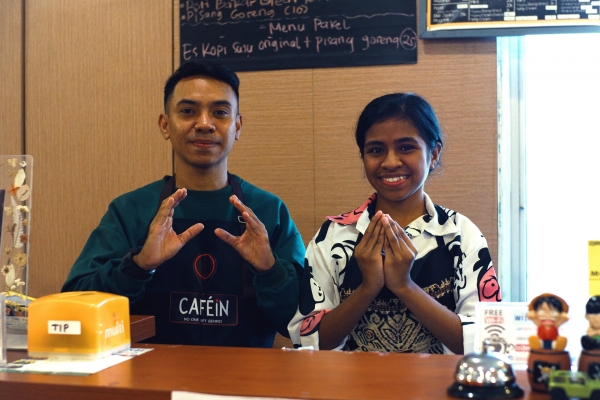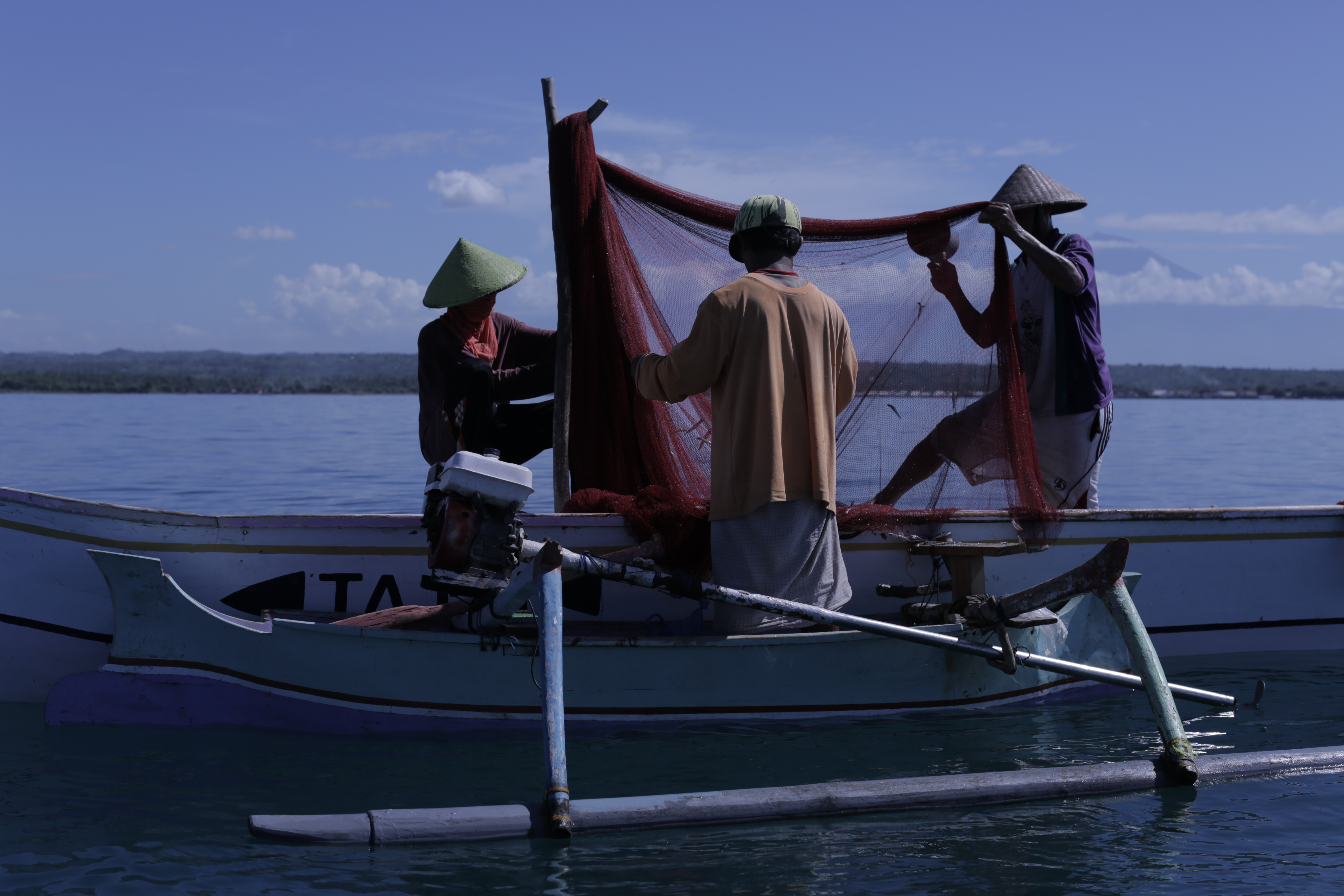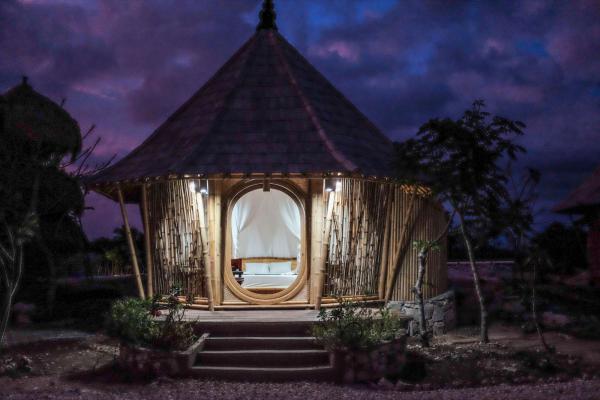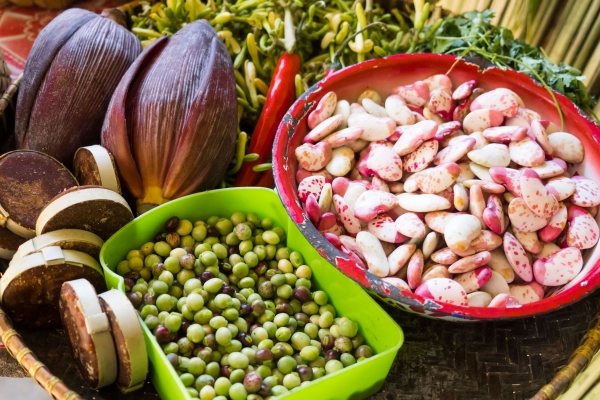Kelimutu is more than its famed crater lakes; immerse yourself in the rich heritage of the Ende-Lio highlands, and its role in the founding of modern Indonesia.
A Kelimutu getaway that lifts a community
RMC Detusoko
THE DIFFERENCE YOU MAKE
Travelling with Decotourism supports sustainable livelihoods for young Lio highlanders who choose farming at home over careers in cities. Retaining well-educated, productive youth in the village promotes economic growth, cultural resilience and indigenous stewardship in the Ende-Lio highlands.
By including in your itinerary visits to cultural heritage sites such as Wologai, and activities such as the Nuwa Nai performance, you help keep alive the sacred spaces where Lio highlanders share their cultural memories.
Proceeds from Decotourism also help RMC invest in its members through higher education and career opportunities, in fields previously beyond locals’ reach, such as hospitality, artisanal food production, and enterprise.
RMC members are selected through an interview process and assigned to suitable business units. It retains 10 per cent of the rates paid for these jobs, to cover operational costs.
Getting there
Detusoko is an hour’s drive away from Ende, the second largest city on Flores island.
Hasan Aroeboesman airport in Ende is 31km away, and has incoming flights from Denpasar (Bali), Labuan Bajo (West Flores), Kupang (West Timor) and Tambolaka (West Sumba). If you are coming from or going to Jakarta, transit via Denpasar or Labuan Bajo.
Notable sites en route from Maumere include Wologai village, Koka beach, St Ignatius Loyola Church (Gereja Tua Sikka), Bikon Blewut Museum of Sikkanese archaeology, and the Maumere Fish Market.
RMC can also arrange for homestays in Detusoko and transportation for Decotourism guests.
Alternatively, you can contact [email protected] to make enquiries and travel arrangements in English.A
About the host
For this trip, we stayed with Nando’s neighbour and relative Yasinta “Mama Ida” Ere, and our meals were prepared by Nando’s wife Nayn.
Mama Ida and her husband Marselinus “Bapa Linus” Pati live with their school-aged daughter and son, and may be hosting small study groups for their children’s classmates in the evening. They have a dog called Der Hund (German for “the dog”).
Mama Ida and Bapa Linus leave early in the morning for the farm. They do not speak English (nor German), but gifts of sirih-pinang (Bahasa Indonesia for areca nut and betel peppers) and small souvenirs from your hometown would be a great icebreaker.
The room in Mama Ida’s house has a comfortable four-poster queen bed. Space for storing your things might be tight, so try to travel light and keep your things organised in your backpack/suitcase. Lio sarongs can be borrowed for your visits to sacred sites or the hot springs, or last-minute wedding invitations. The bathroom is shared with the rest of the family.
Nando and Nayn live in the Suku Rini clan house with their young daughter and Nando’s mother. The clan house may also accommodate university students from Ende City who are doing their rural area internships as part of their course requirements.
A washing machine for laundry is available in the clan house. You will need to bring your own detergent and manually fill the loader with water in between washes and rinses.
TRAVELLER'S NOTES
“Come as a guest, leave as family” is Decotourism’s motto. At homestays and during visits, be mindful that you are being invited into the personal spaces of the people making your trip happen.
An invitation into a Lio house, as illustrated by the Wologai guest entrance ritual, is a sacred milestone for your Lio hosts and should be treated as such.
Decotourism trips start in Ende and finish in Maumere, or vice versa. Confirm the start and end points of your itinerary before book your incoming and outgoing flights.
As of 2019, only low-cost carriers fly to Ende and Maumere, which means your ticket only comes with seven to 10kg of baggage allowance. Excess baggage fees cost around IDR25,000 to 35,000 (US$2 to 3) per kg.
Many Lio houses, traditional and otherwise, have a pair of deer antlers hanging from the ceiling symbolising the “heart of the house.” Do not touch without the host’s permission.
Wologai is a sacred village, so please do not roam unchaperoned. This is because the “heart of the village,” or the circular stone structure which all the houses in Wologai face, is a sacred prayer ground, and visitors may neither touch nor enter. Ask for permission before taking photographs or flying a drone.
Lio people are predominantly Catholic. However, much of their daily life and important community milestones are still governed by their pre-Christian customs. As such, rituals such as agricultural ceremonies, prayer offerings to ancestors, and the annual Kelimutu festival honouring ancestors are commonplace. In contrast, many coastal Endenese are Muslim, owing to their historical ties with the Sultanates of South Sulawesi.
A popular Endenese halal restaurant in Ende is Khalilah, near Hasan Aroeboesman Airport, which serves fish and meat dishes with a variety of rice alternatives at lunchtime. Another great halal food spot is Batu Hijau in Penggajawa Blue Stone Beach (45 minutes west of Ende en route to Bajawa), best known for their ikan kuah santan (a fish curry) and other seafood delights.
Bring a headlamp, light jacket and warm layers for the Kelimutu sunrise walk, as well as plenty of space in your bag to carry them down after the sun rises. The Lio sarong loaned by your hosts could come in handy for warding off the morning winds, and for adding a touch of local flair to your photographs.
On most days, local peddlers selling hot drinks and instant noodles are present before sunrise in Mount Kelimutu National Park. However, it is still a good idea to prepare a flask of hot tea or coffee and a box of digestive biscuits in case your hike happens on a ceremony day, in which case peddlers are bound by a taboo against selling.
A Nuwa Nai music performance in Waturaka village costs around IDR1,200,000 (US$86) and must be booked in advance while arranging your itinerary with RMC.
Lio highlanders observe a customary taboo against weaving textiles and mats, due to a century-old pact made with weaving Lio lowlanders, who are not as agriculturally secure as the highlanders. This ensures equal opportunity in trade for all Lio communities.
If you are interested in shopping for handwoven Lio textiles, you can do so in a traditional market in Ende, or request a visit to a Lio village not bound by the taboo, such as Ndona, which is famous for Lio ikat. Alternatively, itineraries including Maumere may include a visit to Nita village, which produces Sikkanese ikat.
If your visit coincides with a wedding, your host is culturally obligated to drop whatever they’re doing to attend the wedding, and you are going with them. Prepare a small gift of cash and place it in the gift box as you congratulate the happy couple and their parents.
Weddings serve pork and alcohol, and people will be happy to see you celebrate with them. If you abstain from pork and alcohol, Nayn will cook you a separate dinner before the wedding, and you can politely tell your host that you are observing a pantangan (taboo.)
As is the case with many rural destinations in Indonesia, transactions are primarily made in cash. ATMs are available at the BRI Bank in Detusoko, but you may also draw a stash from Ende or Maumere first.
RMC runs a community library in Detusoko and book donations are welcome. Good choices include Indonesian story books, illustrated encyclopaedias, Indonesian books concerning RMC’s industries of interest (agriculture, culinary artisanship, hospitality and brand management), and books for learning basic English.



